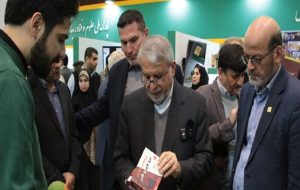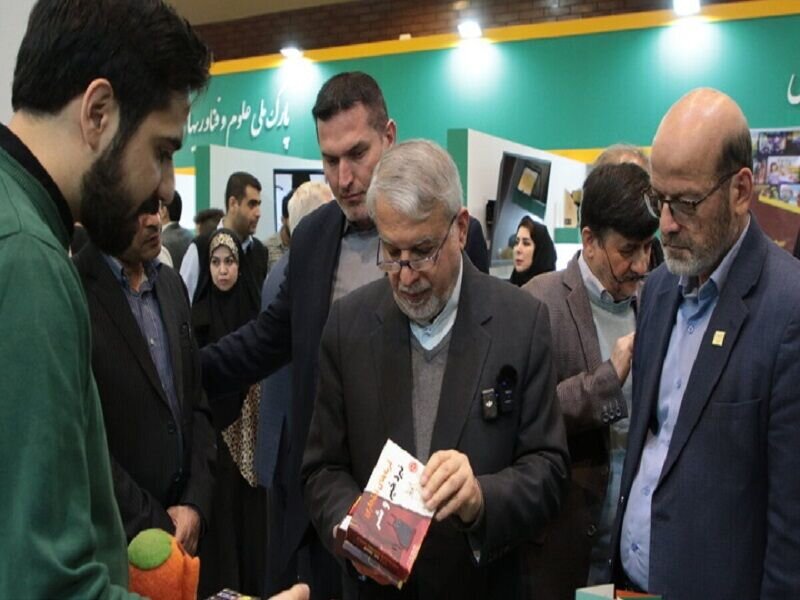Tourism ministry adds division dedicated to AI
TEHRAN – On Monday, Iran’s Minister of Cultural Heritage, Tourism, and Handicrafts, Seyyed Reza Salehi-Amiri, announced the establishment of a new division dedicated to Artificial Intelligence (AI) within the ministry. As mentioned by the minister, the initiative is aimed to make the best use of AI and modern technologies to enhance cultural heritage preservation and


TEHRAN – On Monday, Iran’s Minister of Cultural Heritage, Tourism, and Handicrafts, Seyyed Reza Salehi-Amiri, announced the establishment of a new division dedicated to Artificial Intelligence (AI) within the ministry.
As mentioned by the minister, the initiative is aimed to make the best use of AI and modern technologies to enhance cultural heritage preservation and the global reach of Iranian handicrafts.
Speaking at the inauguration of the third exhibition showcasing the achievements and capacities of creative and knowledge-based companies, held at the University of Science and Culture, Salehi-Amiri emphasized the significance of integrating technology into cultural and economic development.
“Cultural industries and the economy of culture are critical for the country’s development. In today’s world, development without technology is meaningless, and AI plays a pivotal role in this process,” Salehi-Amiri stated.
The minister added that a recent directive by the Supreme Council of the Cultural Revolution mandates every ministry to establish a dedicated AI structure.
AI to transform handicraft exports
The minister highlighted AI’s potential to revolutionize various sectors under the ministry’s purview, particularly the handicrafts industry. He noted that Iran’s annual handicraft exports currently stand at about $250 million, with an additional $250 million in informal “suitcase” exports. However, the global market for handicrafts is valued at $770 billion, underscoring a significant opportunity for growth.
“By making the best use of advanced technologies and contemporary knowledge, we can increase our share of global markets and exports,” Salehi-Amiri said. He stressed the need for high-quality production, sustained innovation, and the removal of barriers to the export of knowledge-based products.
Moreover, the minister praised the efforts of the Supreme Council of the Cultural Revolution, the Science and Technology Park, and the University of Science and Culture for their bold steps in supporting this critical initiative.
Exhibition highlights
The third exhibition, running from January 6 to 8, showcases the services, products, and capabilities of creative companies and startups in soft technologies and cultural industries.
It also facilitates connections between financial and investment funds and innovative enterprises while offering opportunities for experience-sharing among technology ecosystem stakeholders.
Following the official opening, Salehi-Amiri toured the exhibition, engaging with participants and exhibitors to discuss their contributions and challenges.
The Islamic Republic expects to reap a bonanza from its numerous tourist spots such as bazaars, museums, mosques, bridges, bathhouses, madrasas, mausoleums, churches, towers, and mansions, of which 28 being inscribed on the UNESCO World Heritage list.
AM
